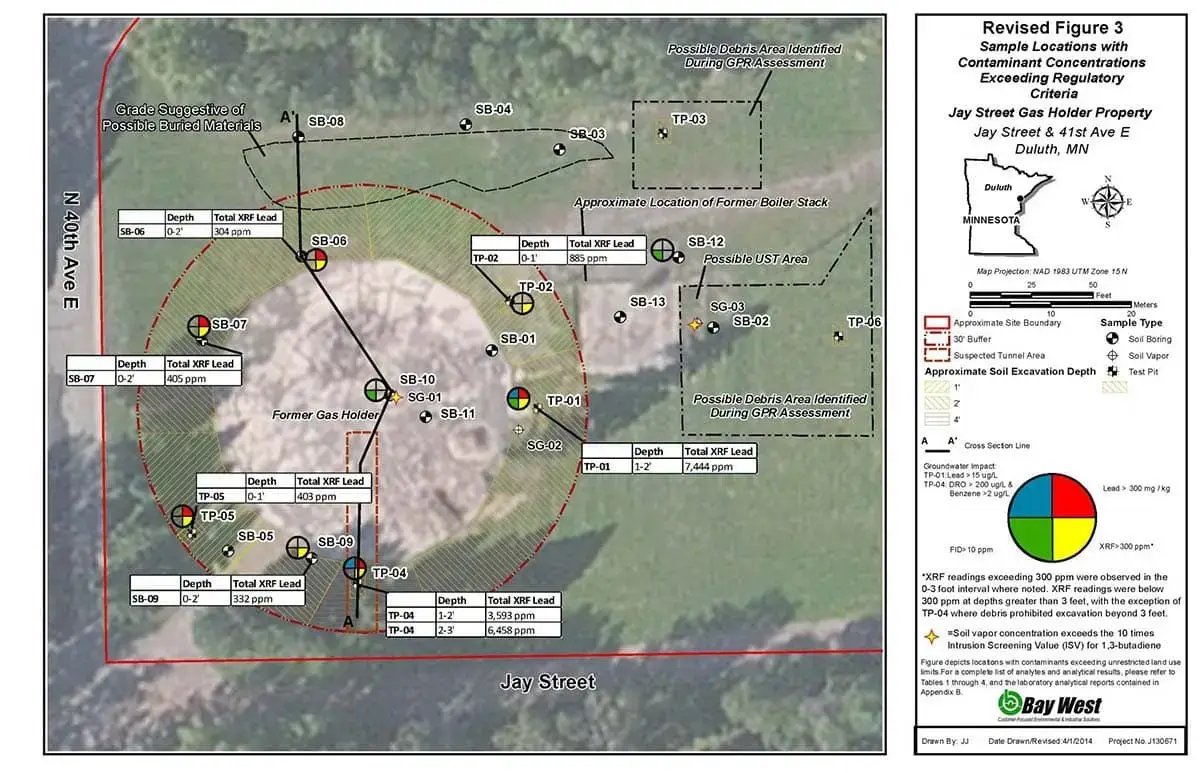The Jay Street Gas Holder was initially built as a gas holder in around 1923 and functioned until approximately 1960, when it was demolished and partially buried on the property. The boiler building was still present at the property until roughly the early 2000s. The foundations of the gas holder and the associated boiler building continue to be present on the property. Currently, the property is used by residents as an open space. The city of Duluth owns the property and intends to redevelop it for residential purposes. The city hired Bay West to provide consulting services as part of a Minnesota Department of Employment and Economic Development (DEED) grant through its Contamination Cleanup and Investigation Grant Program.

Bay West’s approach to this project was carried out in multiple phases. During the first phase, they identified the possibility of environmental contaminants, such as petroleum, asbestos-containing material (ACM), lead-based paint, metals, volatile organic compounds, semi-volatile organic compounds (including polycyclic aromatic hydrocarbons), cyanide, and sulfide, remaining at the site due to gas holder operations and demolition activities.
Following the first steps, Bay West hired a geophysics firm to check for buried debris and tanks at the site. Bay West also dug soil probes and test pits in areas of concern identified during the first phase. Soil was screened for lead in the field using an X-ray fluorescence (XRF) meter. Samples of soil, groundwater, soil gas, and suspect ACM were taken for laboratory analysis. This allowed Bay West to collect significantly more data on lead-impacted soil. The results showed that the primary concern is lead-impacted soil exceeding the residential screening criteria around the former gas holder foundation.
Bay West key personnel prepared and submitted documentation to enroll the property into the Minnesota Pollution Control Agency (MPCA) Voluntary Investigation and Cleanup (VIC) program to facilitate future redevelopment of the property. As part of the process, Bay West submitted a Response Action Plan (RAP) to the MPCA that presented how soil would be screened, treated, managed, and disposed of prior to site redevelopment. Bay West also presented our proposed confirmation sampling methods and locations and prepared volume estimates and other critical information. Bay West used its extensive experience with the XRF meter to correlate field and laboratory data. Based on the field and lab data correlation, Bay West was able to refine the estimated amount of soil requiring removal, as well as the quantity of removed soil requiring treatment. The RAP was approved by the MPCA.
Our expertise in soil screening, treatment, and management, as well as our ability to accurately estimate soil removal and treatment quantities, played a significant role in the RAP’s approval.